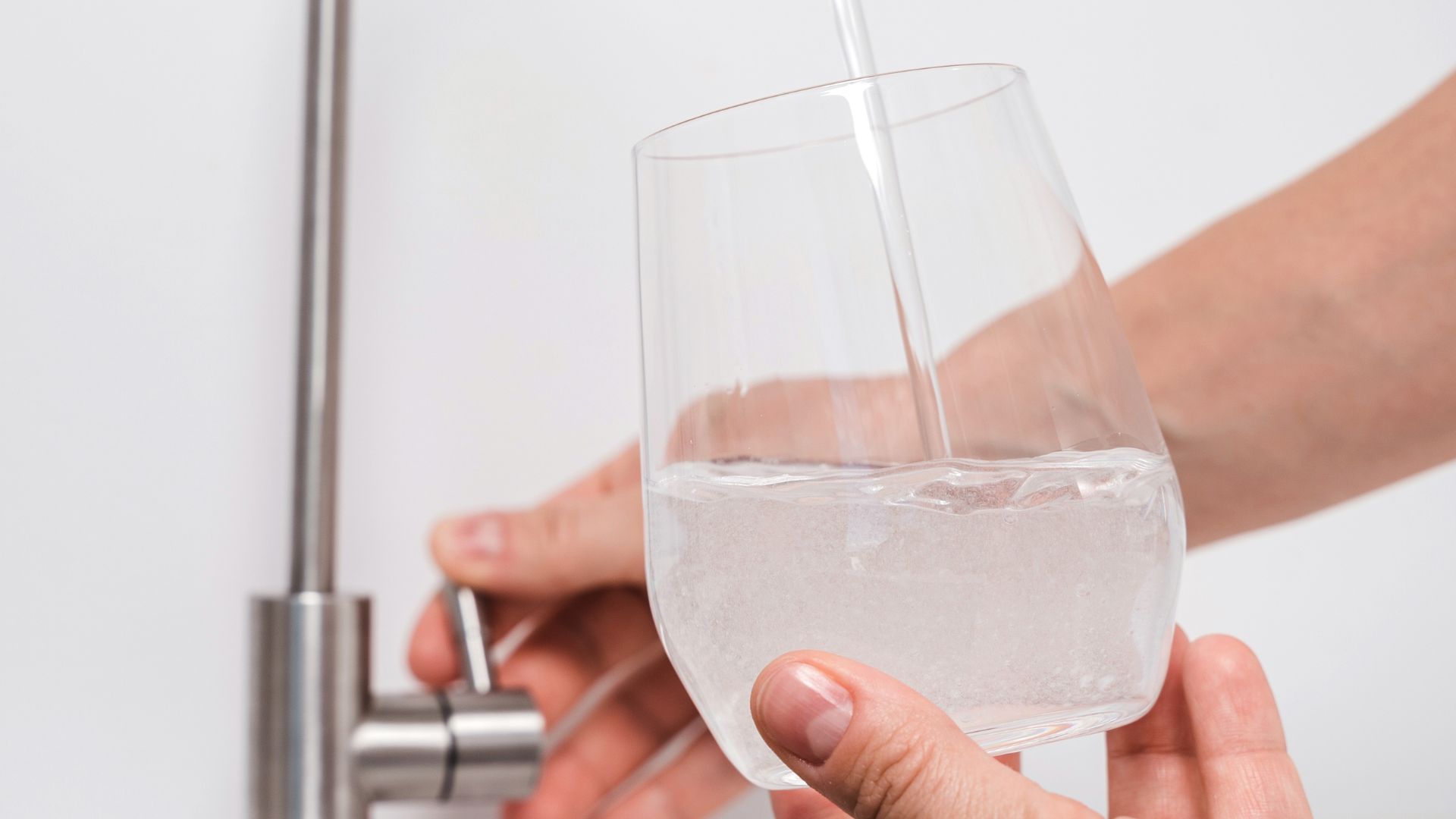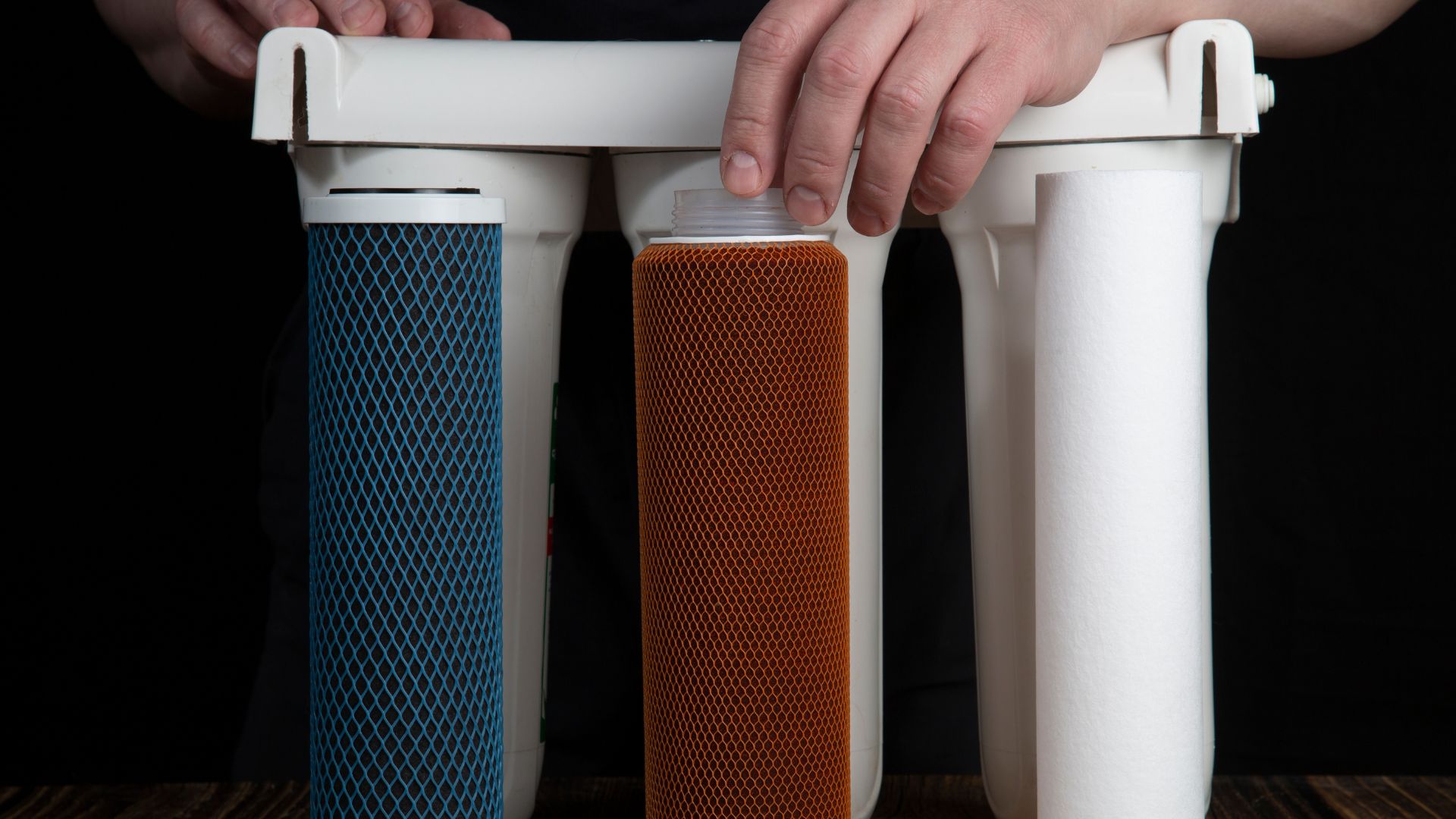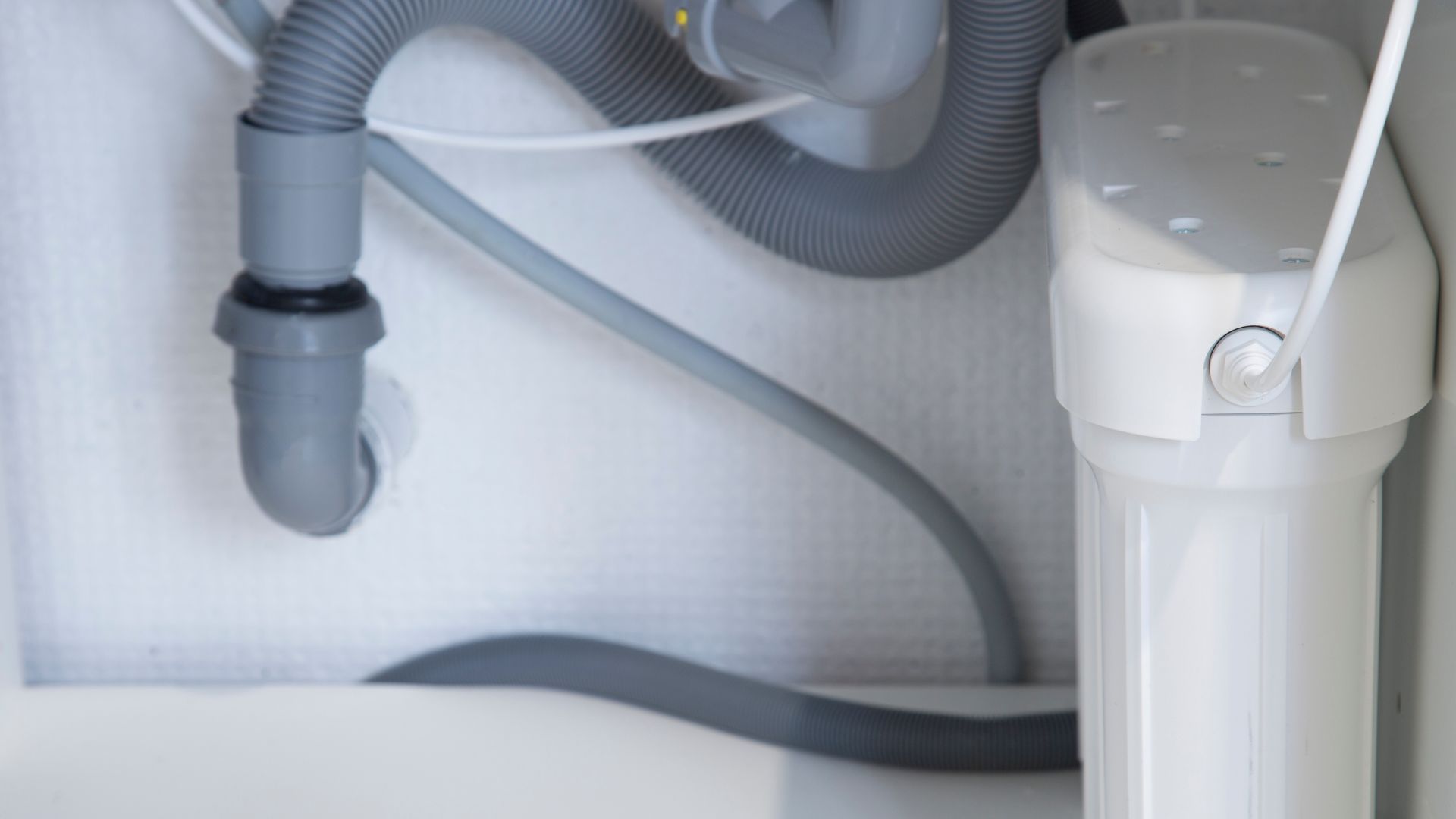Access to clean, safe drinking water is something many Australians take for granted, yet it remains a critical issue worldwide. According to the Australian Bureau of Statistics, our drinking water quality is among the highest in the world, while more than one billion people globally still lack access to safe water. This fortunate circumstance, however, doesn’t mean our water is perfect.
Despite strict quality standards, trace contaminants such as chlorine, sediment, and other impurities can still slip into our tap water. With a water filter, you can greatly enhance the taste, smell, and overall quality of your water. Plus, it offers peace of mind about what you’re consuming. Whether it’s for drinking, cooking, or showering, a good filter can play a key role in protecting your family’s health.
This guide aims to help you navigate the world of water filters and choose the best solution for your specific needs. With a wide range of options on the market, from simple pitcher filters to complex under-sink systems, finding the right fit can feel overwhelming. We’ll break down the benefits and features of different types of water filters so you can make an informed decision.
Evaluating Your Water Quality

Identifying Common Contaminants
Australian homes can have various contaminants in their water supply, such as heavy metals, volatile organic compounds, dissolved solids, and other chemicals. Tap water bore water and rainwater tanks can contain harmful contaminants that may require filtration to ensure safe drinking water.
Testing Your Water Quality
To choose the right filtration system for your home, it’s crucial to have your water tested. DIY water testing kits are available for basic assessments, while professional services offer more detailed analysis. Knowing what contaminants are present helps determine if you need a whole house water filter, a sink water filter, or another system.
Choosing the Right Filtration System
Water filters come in many shapes and sizes, from activated carbon filters that remove chlorine to reverse osmosis systems offering thorough purification. While some households might just need basic filtration, others may benefit more from whole-house systems.
Keep in mind your water usage, flow rate, and pressure when picking the best filter system for your home.
Types of Water Filters
Activated Carbon Filters
Activated carbon filters are one of the most common filtration methods used in water filtration systems. These filters are effective in removing chlorine, volatile organic compounds, and other chemicals, improving the taste and odour of drinking water. However, they may not be sufficient for removing dissolved minerals or heavy metals. Activated carbon is an excellent choice for those needing a basic filtration system for their house water filter.
Reverse Osmosis Systems
Reverse osmosis (RO) systems are among the most effective filtration systems for removing contaminants like dissolved minerals, heavy metals, and other impurities. The reverse osmosis system uses an RO membrane to filter water, producing purified water.
RO systems are ideal for those wanting pure water, but they can reduce beneficial minerals and require significant water pressure. Replacement filters, such as filter cartridges, are also needed for maintenance.
UV Filters
A UV system uses ultraviolet light to kill bacteria, viruses, and other pathogens, providing an effective filtration solution for biological contaminants. UV filters are often used alongside other filtration methods, such as activated carbon or reverse osmosis, to ensure comprehensive water treatment. UV light systems do not remove impurities like dissolved solids or mineral deposits, making them most effective when combined with other water filtration methods.
Whole House Filtration Systems
Whole house filtration systems are designed to filter water for the entire house, ensuring that every tap, shower head, and appliance receives filtered water. These systems often include pre-filters, sediment filters, and activated carbon filters to remove various contaminants. Whole house filtration systems are ideal for homes using rainwater tanks or bore water and provide environmental benefits by reducing the need for bottled water.
Choosing the right water filtration system can be a daunting task, but understanding the pros and cons of each filtration method can help. Whether you need a house filtration system for basic filtration or an advanced RO system, selecting the perfect water filtration system will ensure safe and effective filtration for your home.
Assessing Your Needs

Household Size, Budget, and Lifestyle
Choosing the right water filtration system starts with assessing your household’s specific needs. Larger households may require a whole house water filtration system to ensure filtered water throughout the home, while smaller households may opt for a house water filter or sink water filter.
Budget is another crucial factor, as water filter systems range from basic to advanced filtration methods, such as reverse osmosis systems. Lifestyle choices, including preferences for filtered water for drinking or cooking, can also influence your decision.
Special Requirements and Environmental Concerns
Think about any special needs, like health conditions that might necessitate a more effective filtration method. For instance, using a reverse osmosis system can help remove heavy metals and other nasties, giving you purified water.
If you’re environmentally conscious, aim for a system that decreases bottled water dependency and saves natural resources. Homes relying on bore or rainwater tanks could gain from a whole-house filtration system.
Setting Priorities for Features
When picking a water filtration system, don’t overlook how easy it is to install and maintain. Some systems, like activated carbon or sediment filters, are a breeze to handle, but reverse osmosis systems might need a pro’s touch.
Consider ongoing maintenance needs, such as replacing filters, which includes those pesky filter cartridges. Sorting out your priorities will guide you to the ideal water filtration system.
Installation Considerations
General Installation Process
Setting up a water filtration system can differ based on the filter type. Many basic systems, like activated carbon or sediment filters, can usually be installed by homeowners themselves, which is a bonus. But for more complex setups, such as reverse osmosis or whole-house systems, it’s wise to call in the experts.
Potential Challenges and Solutions
Installing a whole house filtration system or an RO system can come with challenges, such as ensuring adequate water pressure and managing water flow. RO membranes require a significant amount of pressure to operate effectively, and whole house filtration systems need sufficient flow rate for the entire house.
Consulting with professionals can help mitigate these challenges and ensure the right water filtration system is installed correctly.
Importance of Professional Installation
Professional installation is recommended for complex systems like reverse osmosis systems or UV filters. Proper installation is crucial to ensure effective filtration, as incorrect setup can lead to issues with water supply and filtered water quality.
Professional installation ensures that your water filtration system operates efficiently, providing safe and purified water for your home.
Maintenance and Longevity

Routine Maintenance Practices
Looking after your home water filtration system is a must to keep it working smoothly. Most systems need regular swap-outs of filter cartridges, like sediment and activated carbon filters.
By sticking to a schedule for changes, you ensure your system stays efficient and you keep getting top-quality filtered water.
Effect of Regular Upkeep on Performance
Regular upkeep of filter systems, including pre-filters and RO membranes, directly impacts their performance and lifespan. For reverse osmosis systems, changing the filter cartridges as required helps maintain pure water quality.
Most filtration systems benefit from consistent maintenance, which prevents the accumulation of contaminants and mineral deposits, ensuring efficient water treatment for your household.
Tips for Longevity
To extend the longevity of your water filtration system, always follow manufacturer guidelines for maintenance. For systems like whole-house filtration systems, ensuring proper water pressure and using replacement filters on time are crucial steps.
Routine maintenance helps prevent costly repairs and ensures effective filtering of water for the entire house.
Cost Analysis
Initial Costs vs Long-Term Savings
Investing in a home water filtration system can have significant long-term savings compared to relying on bottled water. While the initial cost of installing a water filter may seem high, the reduction in bottled water purchases and the environmental benefits make it worthwhile over time.
Most filtration systems, including reverse osmosis and UV systems, offer substantial cost savings with proper maintenance.
Comparison of Costs for Different Filters
The cost of water treatment systems varies depending on the filtration method. Activated carbon filters and sediment filters are often more affordable and require basic filtration, whereas reverse osmosis systems and UV filters can be more expensive but provide comprehensive water treatment.
The choice of filter system should consider both the initial cost and ongoing maintenance expenses, such as replacement filters.
Value of Quality Filtration
Investing in a quality water filtration system not only provides purified water but also contributes to a healthier lifestyle. Filtering water at home reduces the need for bottled water, conserving natural resources and offering environmental benefits.
Choosing the right water system, whether it’s a whole-house filtration system or a more specific solution, ensures effective filtration and peace of mind for your family.
Environmental Impact
Sustainable Water Filtration Practices
Using a home water filtration system can positively impact the environment by reducing the need for bottled water and minimising plastic waste. Many water treatment systems are designed to be eco-friendly, with long-lasting filter cartridges that help reduce waste.
Opting for a whole-house filtration system can also reduce reliance on bottled water for all household needs, promoting sustainability.
Choosing Eco-Friendly Options
When selecting a water filter, consider eco-friendly options, such as activated carbon filters made from renewable materials or reusable filter cartridges. Most filtration systems can be made more sustainable by choosing high-quality, durable components that require less frequent replacement.
Sustainable filtration methods not only provide effective filtering water but also help conserve natural resources.
Encouraging Green Choices
Opting for an eco-friendly water filtration system is a small but impactful way to support the environment. By choosing sustainable filtration methods, you can reduce your carbon footprint while ensuring clean and safe drinking water for your household.
Make the Right Choice for Pure Water Today
Selecting the appropriate water filter for your home is crucial for ensuring safe and healthy drinking water. With a variety of filter systems available, from basic activated carbon filters to comprehensive reverse osmosis systems, it’s important to evaluate your specific needs and budget. The right water filtration system can make a significant difference in the quality of your water supply, providing both immediate and long-term benefits.
Taking action towards better water quality starts with understanding your options. Whether you need a simple filtration method for basic impurities or a whole-house filtration system for complete coverage, there is a perfect solution for every home. Explore your options, consult with experts, and invest in a home water filtration system that meets your requirements.
For more information and expert advice on water filter systems, reach out to Fixed Today who can help guide you in making the best choice for your family’s health and safety.














